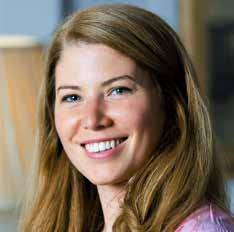
4 minute read
World Health Organization shares updates on its progress on work related to dementia
The World Health Organization (WHO) has undertaken much work in relation to dementia as part of the Global Action Plan on the Public Health Response to Dementia 2017–2025. In this article, Stéfanie Fréel and Katrin Seeher of the WHO share an update on the progress of two key areas of work: The Global Dementia Observatory and the Dementia Friendly Initiative toolkit.
The Global Dementia Observatory
Advertisement
In 2017, the World Health Organization (WHO) launched the Global Dementia Observatory (GDO), which contains an online data portal and an interactive knowledge exchange platform. The GDO data portal provides access to key dementia data from Member States across three domains: policy, service delivery, and information and research. Through its 35 indicators, the GDO assists countries in strengthening evidence-based policies, service planning and health and social care systems for dementia.
The GDO also acts as the global monitoring and accountability mechanism, providing support in measuring country progress on dementia actions outlined in the Global action plan on the public health response to dementia 2017–2025. By August 2020, 56 countries had submitted data to the GDO, covering 62% of the world’s population, with approximately 55% being high-income and 45% low-and middle-income countries. GDO data collection is ongoing in over 40 countries, bringing the total population coverage to 81%. Available GDO data informed the first progress report for the 73rd World Health Assembly (WHA) in May 2020. More information from the report of the WHA is available at: https://apps.who. int/gb/ebwha/pdf_files/WHA73/A73_32-en.pdf
The GDO Knowledge Exchange platform
The GDO knowledge exchange platform (GDO KE platform) supplements the data portal. It provides a space for stakeholders to share resources (e.g. policies, guidelines, case studies and examples of good practice), facilitate mutual learning and promote the exchange of good practice for dementia. All resources are submitted by users of the GDO KE platform. A comprehensive review process consisting of a panel of GDO peer reviewers and a focus group of people with lived experience of dementia ensure that submitted resources meet quality and good practice criteria. Users of the platform are also invited to leave comments and rate the resources.
While the GDO KE platform will be launched later this year, WHO continues to welcome resource submissions and requests to join the GDO peer-review network.
If you have a resource you would like to submit to the GDO KE platform, you can do so at: https://extranet.who.int/ dataform/895286?lang=en
If you are interested in becoming a peer-reviewer, you can do so by signing up at: https:// extranet.who.int/dataform/456967?lang=en
Towards a dementia inclusive-society: a WHO toolkit for Dementia-Friendly Initiatives
Dementia awareness and friendliness represent one of the seven strategic action areas included in the global dementia action plan. This action area aims to improve communities’ understanding of dementia and create dementia-inclusive societies where people with dementia can live meaningfully, safely and with dignity. More specifically, the global dementia action plan’s global target 2.2. aims to establish at least one dementia-friendly initiative (DFI) to foster a dementia-inclusive
society in 50% of countries by 2025. WHO developed Towards a dementia-inclusive society: a WHO toolkit for DFIs to help communities and countries achieve this target. “There is a need to raise public awareness and improve understanding of dementia by engaging communities and helping them assume ownership of this endeavour. This is the fi rst step in combating stigma.”There is a need to raise public awareness and improve understanding of dementia by engaging communities and helping them The toolkit supports individuals workassume ownership of this endeavour. This ing in communities who have little to no is the fi rst step in combating stigma. WHO’s experience in programme planning, impleTowards a dementia-inclusive society: a WHO mentation, management, and/or evaluation, toolkit for DFIs supports individuals, commu- to create dementia-inclusive societies. The The World Health Organization (WHO) is an nities and countries in empowering people toolkit is divided into two parts, the fi rst of agency of the United Nations working with with dementia to remain in, and be a signif- which contains introductory information 194 countries across the world, across six icant part of, their community. The toolkit’s on dementia and a conceptual framework. regions, with its headquarters in Geneva, person-centred, rights-based approach is The second part includes four modules, each Switzerland. It is primarily concerned grounded in international commitments featuring a series of practical steps and with public health matters, including such as the United Nations Convention exercises, focusing on: starting a new DFI, health systems, health through the on the Rights of Persons with Disabilities integrating dementia into an existing initi- life-course, and non-communicable and (UNCRPD), the 2030 Agenda for Sustainable ative, monitoring and evaluating a DFI, and communicable diseases. Development and its Sustainable Develop- scaling-up a DFI. The modules can be used ment Goals (SDGs) and Universal Health together or separately, and can be adapted https://www.who.int Coverage (UHC). to suit local needs and settings.



To pioneer nutritional solutions that help people live longer, more joyful and healthier lives.












